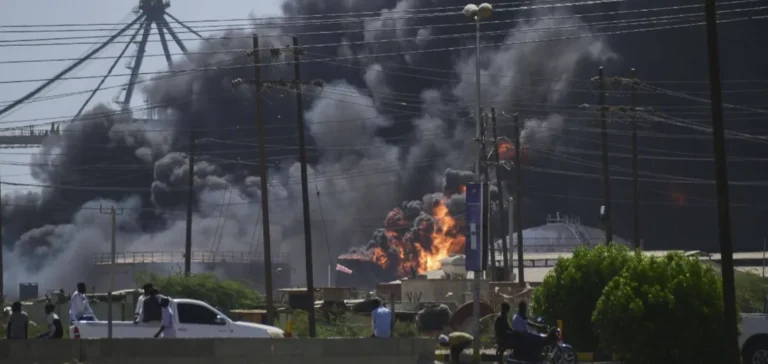Sudanese authorities have warned they may halt operations and evacuate staff from the Heglig oil site after two drone strikes within days. The attacks caused several casualties and renewed concerns over the security of this border area critical for South Sudan’s oil transit. The Ministry of Foreign Affairs in Khartoum blamed the Rapid Support Forces, known as RSF, for the strikes, labeling them terrorist acts.
A vital hub for exports
Heglig is not only an oil field but also the custody transfer and metering station (PHCC) managed by PETCO, where crude from South Sudan’s Block 5A converges before injection into the Nile Blend pipeline. This infrastructure links Heglig to Port Sudan via the Greater Nile Petroleum Operating Company (GNPOC) pipeline, designed with a capacity of 450,000 barrels per day. Any disruption to the PHCC’s operation could slow or halt part of the Nile Blend flows, a light and waxy crude representing a significant share of South Sudanese exports.
Logistical paralysis risk
The Heglig station lies near the local airport, also targeted by the drones. The operational impact extends beyond security, as flights ensure staff rotations, spare parts delivery, and emergency evacuation. A prolonged suspension of air logistics would compromise operations and could force operators to halt production. Local companies, including 2B Operating Company (2B OPCO), have already warned of a potential shutdown if attacks continue.
A fragile market
Sudanese and South Sudanese volumes transit almost exclusively through the Bashayer terminal north of Port Sudan. This port itself was targeted earlier this year by several drone strikes that disrupted oil facilities and fuel depots. At the same time, the closure of access to Sudanese cargoes by the United Arab Emirates forced tankers to reroute, as illustrated by the diversion of the Pola vessel carrying Dar Blend, a heavy and acidic crude produced in Blocks 3 and 7.
Destinations and quality constraints
Sudanese crudes are defined by distinct profiles: Dar Blend, heavy and high-acid, and Nile Blend, lighter but waxy, requiring specific infrastructure for transport. The main buyers in 2023 were the United Arab Emirates, Malaysia, Singapore, and China. The forced rerouting of cargoes toward Southeast Asia changes the economics of shipping routes and widens discounts on these crude grades, already penalized by their technical characteristics.
Fragile production
After resuming earlier this year, South Sudan’s production reached about 138,000 barrels per day in June, while Sudan remained weakened by civil war. South Sudan’s dependence on the pipeline crossing Sudan makes its economy highly vulnerable to disruptions on Sudanese territory. Repeated strikes on Heglig and Port Sudan add further uncertainty amid a prolonged conflict between the Sudanese Armed Forces and the RSF.






















